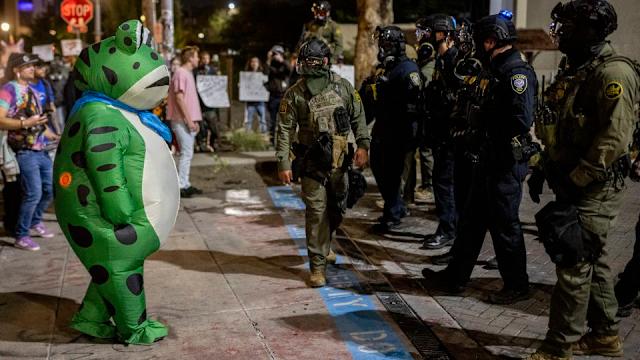September 22, 2023/12a
“Lord, make me an instrument of your peace: where there is hatred, let me sow love; where there is injury, pardon; where there is doubt, faith; where there is despair, hope; where there is darkness, light; where there is sadness, joy. O divine Master, grant that I may not so much seek to be consoled as to console, to be understood as to understand, to be loved as to love. For it is in giving that we receive, it is in pardoning that we are pardoned, and it is in dying that we are born to eternal life.” – The Prayer of Saint Francis
Erie, PA – Gannon University utilizes Catholic tradition to take lead while serving children, families, and the community at both local and international levels. It is through the understanding of solidarity that social and professional responsibility is developed individually for the greater good of the majority.
On Wednesday, September 13th, students, staff, and faculty gathered in Gannon University’s Yehl Alumni Ballroom. They did so for no other than the Orlando Biomedical Ethics and Catholic Social Teaching Lecture. This instruction was led at 7:00pm by local psychiatrist, physician and Gannon alum, Marry Anne Albaugh, MD, DLFAPA.
Dr. Albaugh reflected on the vision of Gannon regarding the University’s Biomedical Ethics Catholic Social Teaching Endowment. She stated that as aspirations are reflected on, they aid in the achievement of more compassionate, considerate, and commiserative environments. She stressed the significance of adaptability to better accept the alterations of biomedical sciences and ethical guidelines.
Dr. Albaugh reflected on the psychodynamic impact of adverse childhood events including abuse, neglect, and household dysfunction on critical, childhood development. This developmental period occurred from between the time of conception up until six years of age. When impacted by adverse events, individuals’ social, emotional, and cognitive processes are influenced.
The audience was asked to consider if any adverse events had occurred within their own lifetimes. Hands were raised, unsurprisingly so. Dr. Albaugh confirmed that a large majority of people have experienced at least one of the unfavorable experiences that was listed on the PowerPoint located at the front of the Ballroom.
A local study conducted in the Erie County Prison was reflected on by Dr. Albaugh that took place a few years back. Verified assessments were conducted over a span of three months by a nurse practitioner with an interest in the trauma and adverse childhood events experienced by inmates.
One of the things she shared was that, often, no one had asked them [the incarcerated] that [to reflect on and share experiences from early on in childhood]. Not being interested in these explanations of individuals’ adverse events is something that needs to be reconsidered to aid in our own understandings of others’ experiences.
There was a question amongst the crowd regarding the denotation and connotation of the word trauma. It was made clear that trauma can have longstanding, detrimental impacts on wellness.
According to the American Psychological Association, trauma is defined as “any disturbing experience that results in significant fear, helplessness, dissociation, confusion, or other disruptive feelings intense enough to have a long-lasting negative effect on a person’s attitudes, behavior, and other aspects of functioning.”
What one may find to be disturbing may not be considered as such to another. The same may be applied to trauma, explained Dr. Albaugh. What may be traumatic to one individual, may not be to another. There is variance in emotional response amongst individuals.
Gannon University is dedicated to promoting solidarity to aid in the achievement of a world that may even one day be considered ultimately humane. This is in respect to the collaborative mission between the University and the Orlando Biomedical Ethics and Catholic Social Teaching Lecture Endowment.









